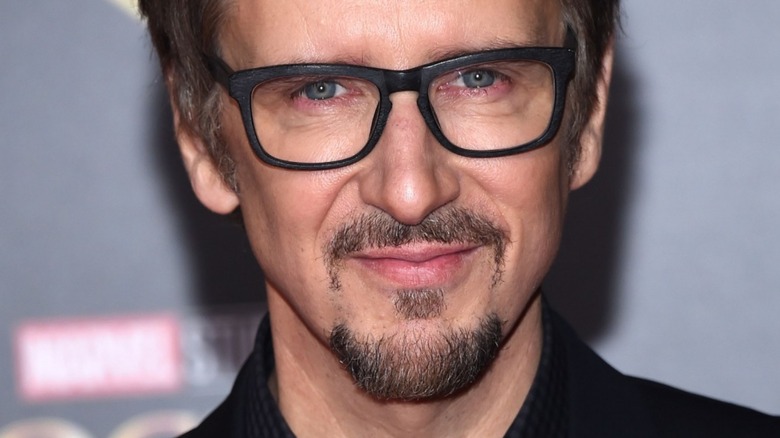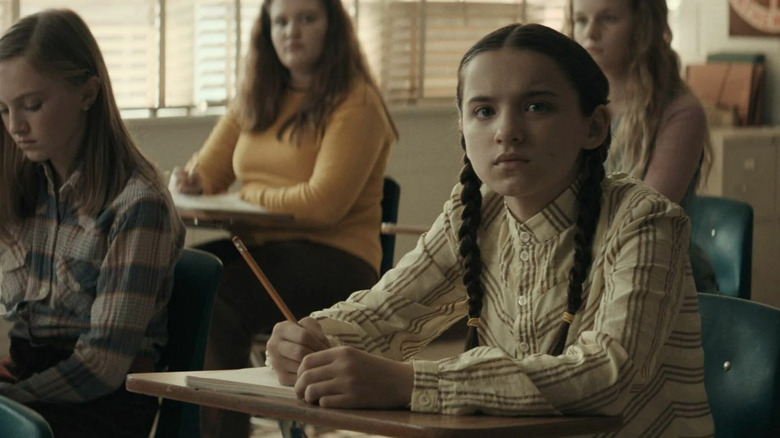Director Scott Derrickson Describes His Inspirations For The Black Phone - Exclusive
Joe Hill's original 2004 short story "The Black Phone" is a lean and mean thriller with a simple yet compelling premise: A boy named Finney gets abducted by a serial killer known as The Grabber, and via the phone in his basement cell, is able to speak with the ghosts of The Grabber's previous young victims. Reminiscent of the writing of Hill's father, Stephen King, it's easy to see how this material appealed to Scott Derrickson, the director of horror movies such as "The Exorcism of Emily Rose" and "Sinister" as well as the first "Doctor Strange" movie. Fleshing out such a short piece of writing into a full-length feature film, however, required some creative adaptational choices.
Looper got the chance to speak with Derrickson about directing the movie of "The Black Phone." We asked questions about how he developed various themes in the film, to which he explained that his general artistic method is to think less about specific themes and more about things from his own life. It turns out that Derrickson's recollections of childhood played a major role in fleshing out the horror of "The Black Phone."
Childhood fear and faith inspired The Black Phone
When asked about how "The Black Phone" balances its "stranger danger" premise with acknowledgment of more common evils, Derrickson explained how the horrors in the movie were drawn from personal experiences.
"I lived in that 'stranger danger' time," he said. "Growing up in north Colorado, Ted Bundy had just come through there, and the Manson murders had recently taken place. My friend who lived next door to me, his mother was abducted and murdered, so the presence of the silent killer who could abduct you was very real for everybody in my neighborhood."
As for the film's heavier recollections of domestic abuse, Derrickson said, "There was violence in my house and domestic violence in a lot of the houses around me. I was trying to capture the kind of fearful, unstable, violent world that I grew up in when I was that age and thought that if I could capture it realistically, that time and place, it would be a great setting for this particular story."
Derrickson's lifelong exploration of spirituality, something that's impacted all of his films, was particularly significant in developing Finney's psychic sister, Gwen. Talking about her religious practices, Derrickson explained, "The idea that she had her own private, personally constructed faith and belief — that was my experience when I was a kid. That was a part of me. Whatever my relationship with God was, was my own. I wasn't raised in church or anything like that. I thought that was interesting."
"The Black Phone" is now available on Blu-ray and DVD.
If you or someone you know is dealing with domestic abuse, you can call the National Domestic Violence Hotline at 1−800−799−7233. You can also find more information, resources, and support at their website.

